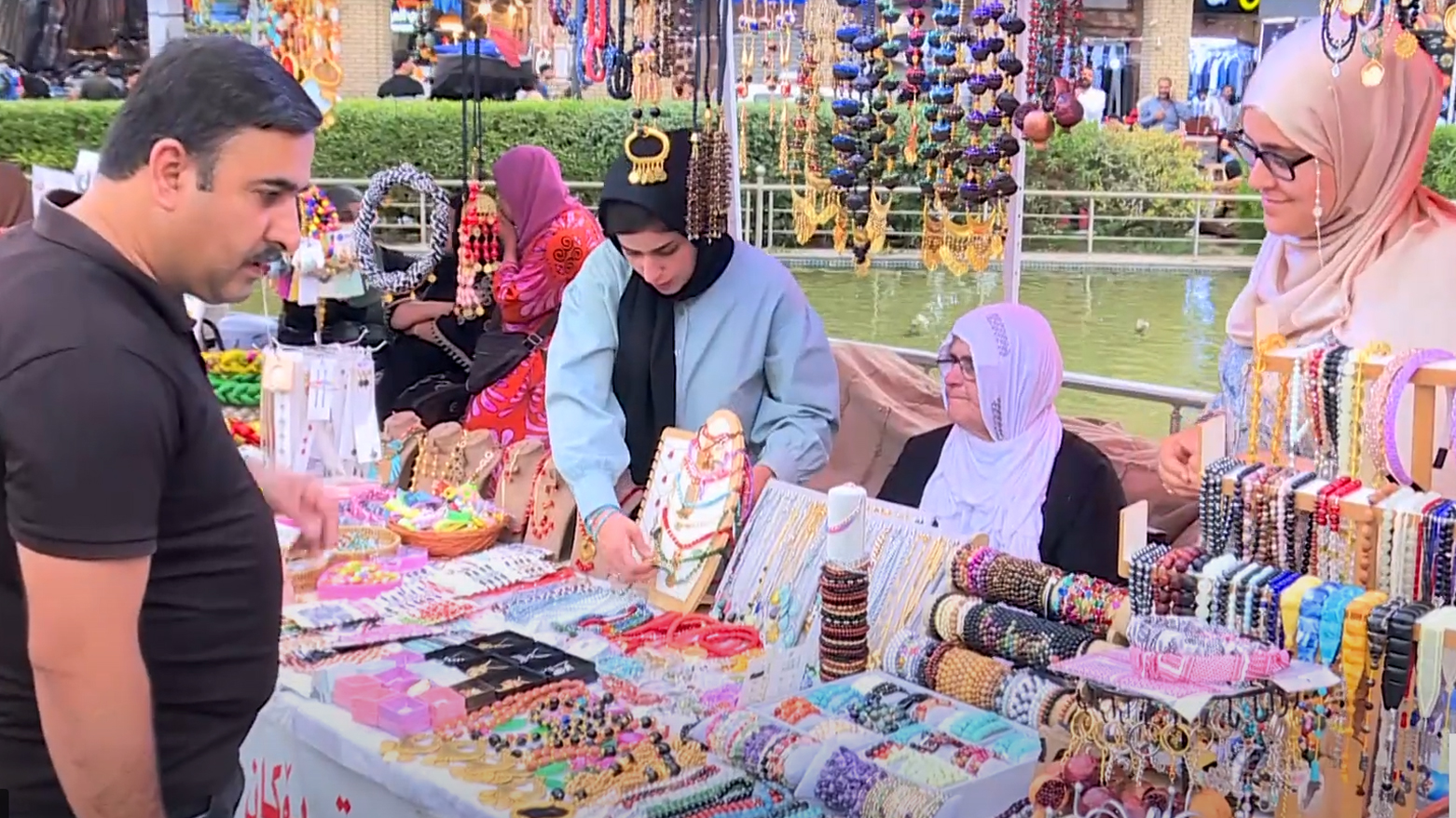Empowering Talents, Preserving Heritage: Women’s Handicrafts Festival Revives Kurdish Tradition in Erbil
By merging economic empowerment with cultural preservation, the event reflected a growing recognition in Kurdistan of women’s central role in sustaining tradition.

By Ahora Qadi
ERBIL (Kurdistan24) – Beneath the ancient stones of Erbil Citadel, a spirited festival unfolded this week—celebrating the craftsmanship, culture, and economic resilience of Kurdish women. Organized by “Mala Hêlîn for Advancing Women’s Productivity in Kurdistan,” the festival brought together over 22 women artisans, offering them a vital platform to present and sell their handmade products.
The festival’s core mission was clear: to provide economic opportunity and cultural recognition for women who work from home, often with limited access to markets or retail spaces. From traditional cuisine and handwoven fabrics to intricate jewelry, embroidery, and locally-crafted accessories, the stands brimmed with Kurdish identity and generational knowledge.
Artisans Turn Heritage into Livelihood
Chinar, one of the participants who specializes in Kurdish bread and handmade traditional garments, expressed the significance of the opportunity.
“I’ve been doing this work for years, but this is the first time I’ve had a space like this to display and sell my work,” she told Kurdistan24. “This isn’t just about selling. It’s about reviving our Kurdish culture, which is slowly disappearing—especially our traditional foods, being replaced by fast food.”
Chinar explained that festivals like this one are essential for women like her who cannot afford to rent commercial space. “Opening a shop is too costly, but this gives us a space to share our products at a minimal fee. That makes a real difference.”
Protecting Culture Through Thread and Time
Another artisan, Suheyle, renowned for her meticulous handcrafting of Kurdish outfits and ornamental work, highlighted the cultural urgency behind her participation.
“I don’t want these traditional crafts to disappear,” she said. “That’s why I keep making them and bring them to festivals like this. These gatherings help us protect our cultural heritage and let people recognize the value of our handmade work.”
Suheyle also stressed the importance of ensuring these traditions stay alive beyond exhibitions: “We must use them every day, wear them, pass them down—so they remain a living part of our community, not just something kept in memory.”
Beyond Economics: A Revival of Identity
While the festival provided a lifeline to women seeking to support their families, it also played a pivotal role in cultural revival. Attendees flocked to the stalls to admire and purchase the unique crafts—many infused with heritage, symbolism, and untold stories.
By merging economic empowerment with cultural preservation, the event reflected a growing recognition in Kurdistan of women’s central role in sustaining tradition, especially through their often-undervalued labor at home.
